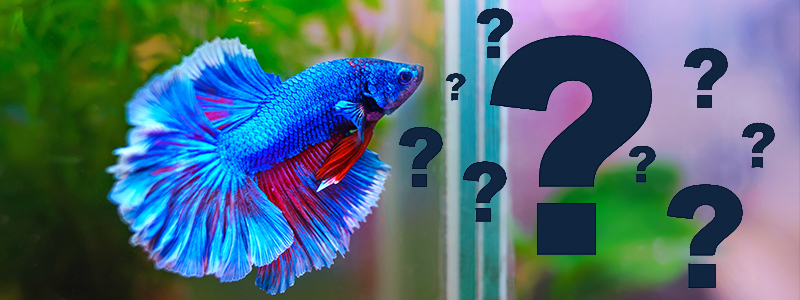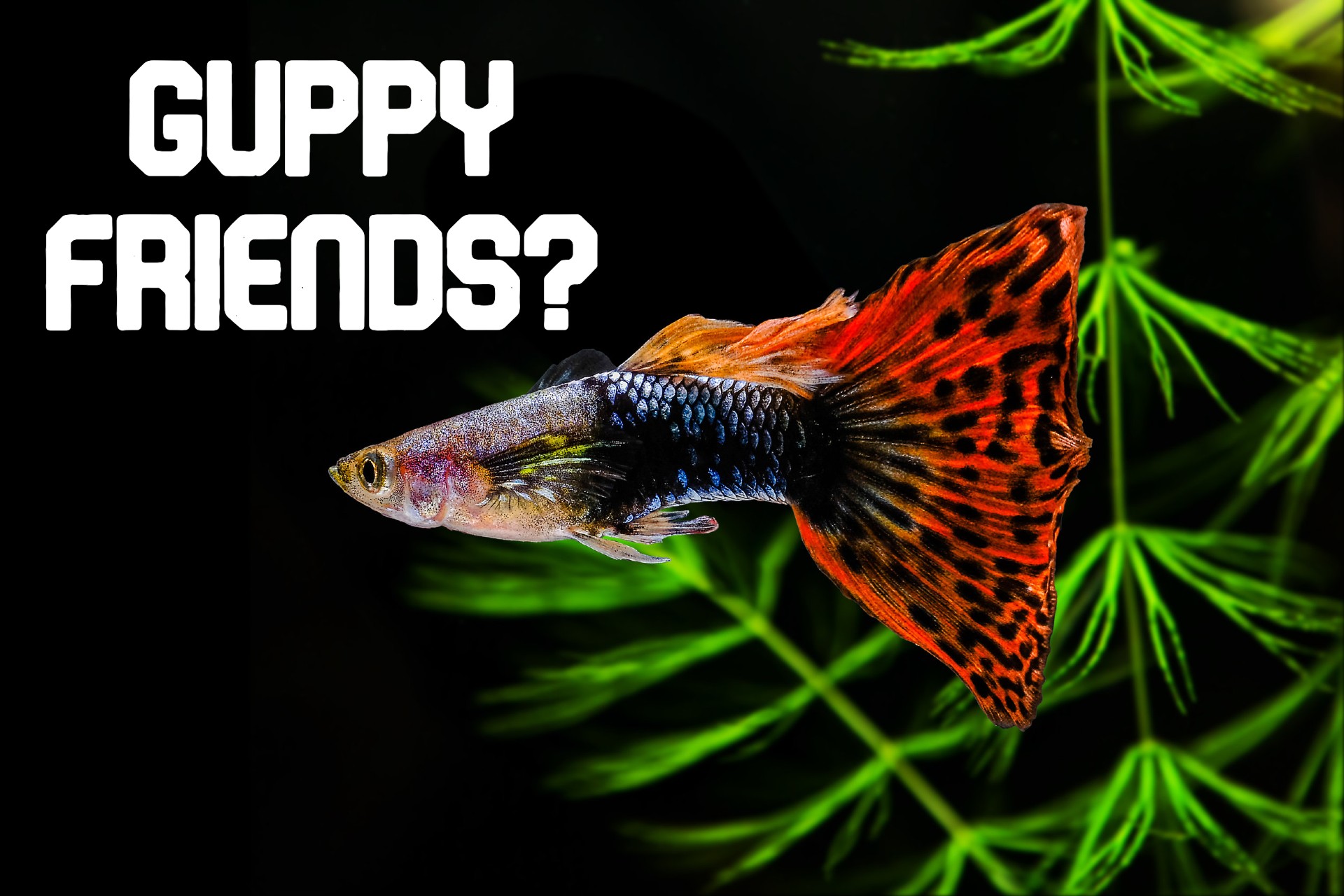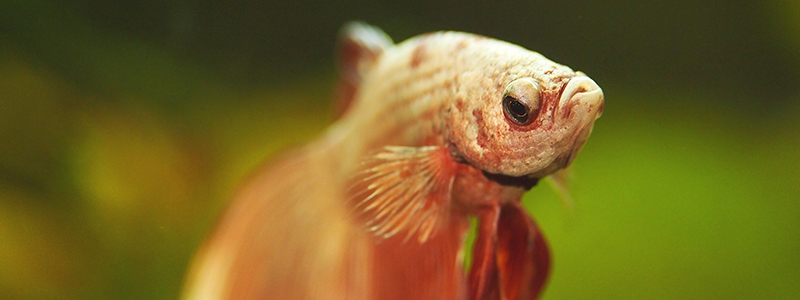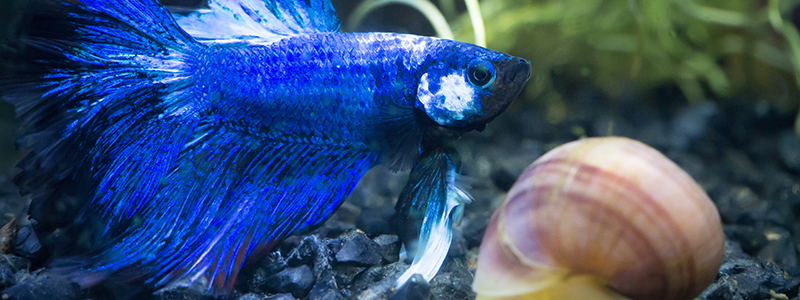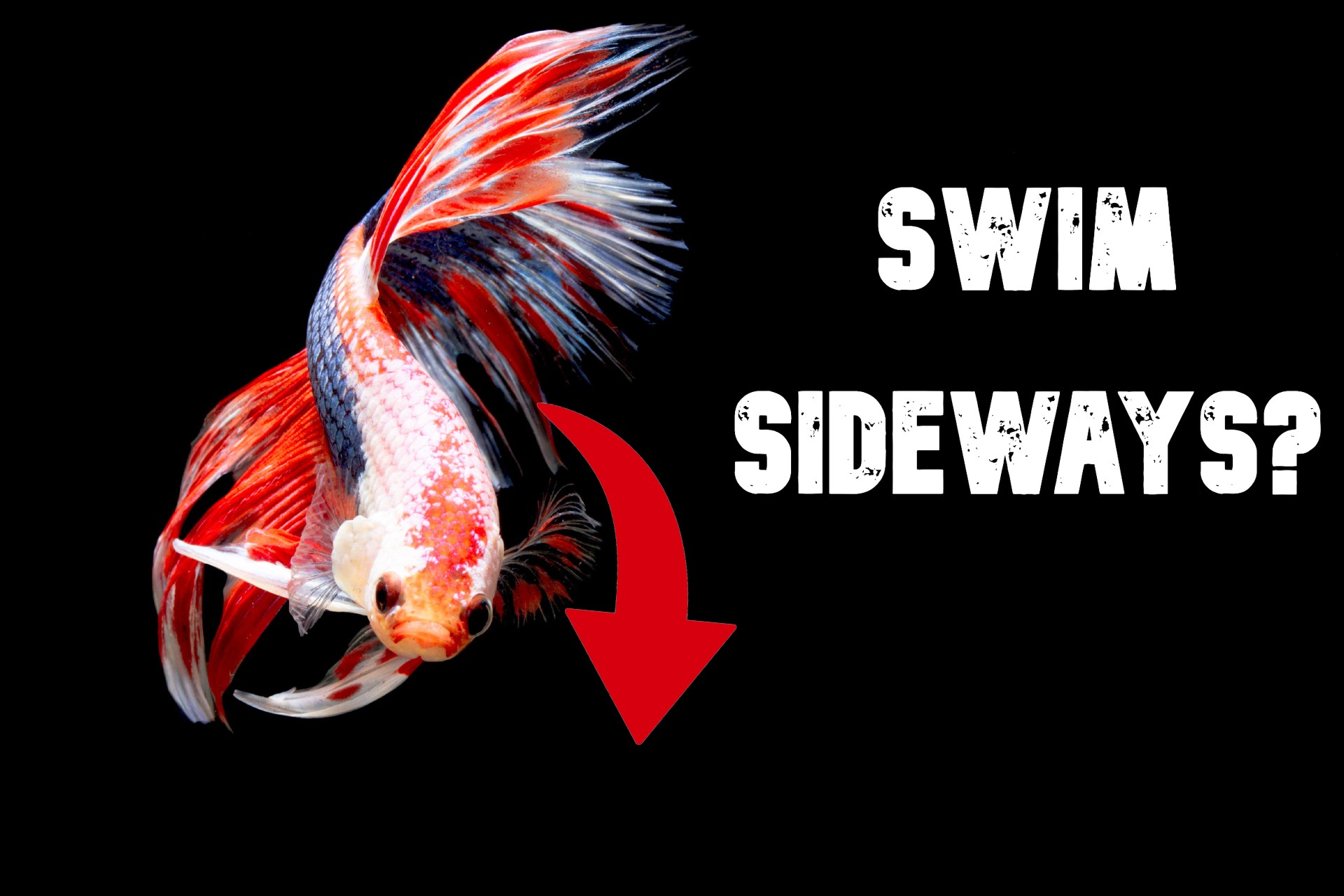Betta fish are one of the most popular aquarium fish on the market, loved by both beginners and professional aquarists. They are easily available, don’t require much space, and are relatively low maintenance. However, Bettas differ from other tropical fish when it comes to feeding, and as a result, there has been a lot of confusion regarding how much food a Betta needs to survive, thrive, and be healthy.
A Betta fish can go 14 days without food. Keep in mind, that during this time their body will likely go into starvation mode, and will likely stress out your fish. However, if you have a short vacation coming up and are wondering if you should overfeed or not, it is always better to not feed your fish than it is to overfeed. If you are worried about how long your Betta can live without food while you are gone, or have other concerns over your Betta’s diet, there are plenty of things you can do to make sure they stay healthy for a few days.
Dangers of Overfeeding Betta Fish
If you are planning on leaving your fish alone while you are away, you might be tempted to give him a large serving of food before you go. It makes sense, thinking that extra food will help keep it fuller longer. However, Betta fish are prone to getting sick when overfed, and they are easier to overfeed than other tropical fish. This is due to the fact that they have such small stomachs.
A Betta fish stomach is about the size of it’s eyeball! If you are feeding pellets to your fish, this equates to probably 2 pellets per meal, twice a day. It seems like such a small amount that even on a regular day, Bettas are likely to be overfed.
So, why be worried about overfeeding? Is there anything dangerous about a chubby Betta fish? Well, the main concern about overfeeding is that it will lead to diseases and health complications, which can shorten the life of your Betta.
Constipation is a health concern for Bettas of all ages, primarily because they are so easy to overfeed. Additionally, Bettas are most often fed dry pellet food which expands in the water and their stomachs- making them bloated and backed up. Constipation in fish can lead to more than just discomfort- if the blockage is causing pressure on their swim bladder, they can have trouble swimming and remaining upright.
If you suspect that your Betta fish is constipated, there are several ways you can treat it. The first is to hold off on feeding for a few days. Usually, a day or two of fasting is enough to get things moving and you should be able to see the bloating go down. If that isn’t working, another method is to feed your Betta a tiny bit of some high-fiber food. Many Betta keepers use the inside of a frozen pea as a great fibrous treat for bloated fish. Simply thaw out a frozen pea, scoop out a small amount of the inside mush and feed it to your Betta. You should see results in a day or so. Be sure to scoop out any uneaten food. Extra food that lies around the fish tank can also cause problems, which leads us to our next danger of overfeeding: poor water quality.
Keep Your Water Quality
The worst thing that you can do for any fish is to neglect its water quality. When it comes to overfeeding your fish, extra food that does not get eaten will sink to the bottom of your tank and begin to rot. This will cause your fish tank to become cloudy, dirty, and a breeding ground for diseased in your fish. This is especially problematic if you are not around to clean the water for a few days- like when you overfeed your fish before going on vacation.
Clean water not only keeps your fish happy, but it is also extremely important in keeping your fish alive and healthy. Many of the most common Betta diseases are caused by poor water quality. Dropsy is a common Betta disease caused by poor water quality that leads to a bacterial infection. Similar to constipation, this causes the fish to bloat and swell, but unfortunately is not usually curable. This often results in death, and a very uncomfortable decline in health. To prevent diseases like these from affecting your fish, it’s imperative to keep the water clean. Always remove extra food that goes uneaten after 5 minutes, or better yet, do not overfeed, to begin with.
As you can see, it is much more harmful to your fish to overfeed than it is to underfeed. Keep this in mind if you are going away for a few days and are tempted to bulk up on the food. If you are only going to be away for a week, leaving your Betta unfed will probably be the best bet. If you are going to be away for longer, you might want to have someone come by to feed your fish just in case. If you can’t have someone come through to feed your fish, consider investing in an automatic fish feeder. These devices work on a timer, and give you direct control over the amount of food your fish gets per day. They are often good for 14 feedings.
Ideal feeding schedule for Betta fish
Now that we know the dangers of overfeeding Bettas, you probably want more information on how to feed them correctly. Unfortunately, following the directions on the packaging is not usually the best bet. Fish food manufacturers often suggest more food than necessary because it will make you run out of food faster- causing you to buy more!
There is a common piece of advice to feed about as much as your fish can eat in five minutes. This can lead to your fish overeating! A better method is to remember the size of your fish’s stomach. If your Betta’s stomach is the size of its eye, 2 pellets should suffice per meal. You can also experiment! If your Betta seems overly aggressive at feeding time, it could be that it is still hungry. Try increasing the food amount slowly and observing how your fish is able to digest.
Once or twice a day is the recommended feeding schedule for your Betta, and many aquarists also recommend only feeding your Betta 6 days a week. Giving your Betta one day a week to fast can often keep their digestive system healthy, and prevent complications from overfeeding before they happen. If using pellet food, it can also be beneficial to soak the pellets in a little fish tank water prior to feeding, since this will help the food expand before it goes inside your fish.
Why isn’t my Betta eating?
If your Betta fish is refusing food, don’t panic- it might just be feeling picky. In the wild, Betta fish eat insect larvae and bugs, and your fish might just be bored if you are feeding it a pellet-only diet. If you are interested in spicing things up for your fish, there are several types of food available on the market that are a tasty treat for Bettas: Mosquito larvae, brine shrimp, and bloodworms. These can be purchased live or frozen, and offering them to your Betta is likely to get their appetite moving.
If your Betta is still not taking food, keep an eye out for other symptoms to determine if they are getting sick. In most cases, a water check and change can help with minor fish illnesses. If you suspect something more serious, there are plenty of medicines available at your fish supply store that can be added to your tank water. Of course, if your fish lives with other tankmates, be sure to move them to a quarantine tank before you treat them. This will also prevent the illness from spreading to other animals in the tank.
Conclusion
It is always better for your Betta fish to live without food than it is to overfeed it. Your Betta can go up to 14 days without food, but it might stress them out to be fasting for so long. If you think you will be gone longer than 5 days, it is a good idea to have someone give your fish routine feedings or to set up an automatic feeder.
Overfeeding your fish will not help it stay full, it will only make things more dangerous for their health while you are away. Observation is key when working out the best feeding routine for your Betta. A regular diet can be spiced up with occasional treats in order to keep things interesting for your fish and keep their digestive system regular, and a day of fasting is actually beneficial in keeping your fish healthy.
Of course, if you ever suspect that your fish has become constipated there are several treatment options available that even a beginner can handle. When in doubt, going without food is always a healthier option for your Betta, and they can go quite a long time without it. This is just another reason why Bettas make such a great and low-maintenance aquarium addition.

